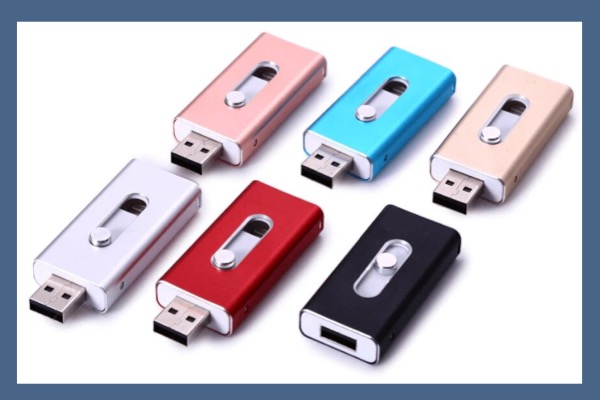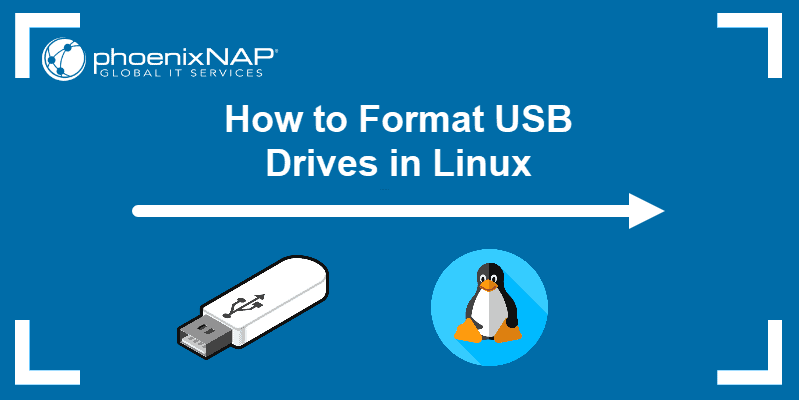
- #FORMAT FLASH DRIVE FOR MAC AND USB MAC OS X#
- #FORMAT FLASH DRIVE FOR MAC AND USB PC#
- #FORMAT FLASH DRIVE FOR MAC AND USB FREE#
For reasons that are a bit hard to fathom, that’s not an option in Disk Utility on the Mac.
#FORMAT FLASH DRIVE FOR MAC AND USB PC#
If you want to retain Windows compatibility with the flash drive, you might need to format it on a Windows PC using the NTFS (Windows NT File System) format.

I’ll confirm by copying my own 4.93GB file: Take another minute to quadruple check that you’ve picked the right device and click on “Erase…”Ībsolutely sure you’ve picked the correct device? Click on “Erase” to proceed…Īfter a few moments, it shouldn’t take too long, your USB thumb drive will reappear on the Desktop with its new name and you can now drag that 5GB file onto the device for safekeeping.

Got the right unit? Click on the “Erase” tab then pick “Mac OS Extended (Journaled)” - my recommendation for flash drive formats, though it does make it unreadable on a Windows PC - and enter a new name for the device if you’re so inspired: MS-DOS? Really? Well, it’s at least an early, relatively primitive file format from the Windows side of things, though I can’t imagine a single person still running MS-DOS on their computer! You can confirm by looking at all the stats at the bottom of the window. Picking the latter would be a complete disaster and you’d hate me forever. Take your time here and make sure that you’ve selected the flash drive, not your main hard drive. Launch it and you’ll see a list of all drives and devices hooked up to your system:īe careful here.
#FORMAT FLASH DRIVE FOR MAC AND USB MAC OS X#
That’s done by finding the “Disk Utility” program that’s included with Mac OS X in the “Utilities” folder within the “Applications” folder. To fix it, we’re going to need to reformat the flash drive. Here’s the error message you’re probably seeing:Īs you can see, if you miss the last few words, you can be baffled how a file can be substantially smaller than the capacity of the thumb drive, but still fail to copy. Now back to the file too big for the FAT format problem. What? Empty your Trash and it’ll both empty whatever trashed files you have on the computer itself and the files you’ve dragged to the Trash from your USB flash drive too.
#FORMAT FLASH DRIVE FOR MAC AND USB FREE#
You drag them all to the Trash, then check your free space. It works like this: You have an 8GB flash drive. So even if the flash drive has tons and tons of available space, the sad fact is that your file is too big for the file format.īut there’s another possibility that I see a lot of people trip over with flash drives too, even when the files are smaller than 4GB, that you haven’t emptied your trash yet. A bit of digging reveals that the max filesize supported on the File Allocation Table (FAT) version of the Windows file system is 4GB. It actually says “item can’t be copied because it is too large for the volume’s format.” That “for the volume’s format” is critical, because most vendors - Kingston included - ship flash drives with a default format of Windows (FAT). If you cant get an external hard drive or USB flash drive to mount when you. Okey, now we are ready to use the USB Flash Drive.I’ve seen this error too and what you’re missing is the critical last few words of the error itself. Enter a name for your disk (vmdisk1 in this case), select a format (Mac OS. Step by step To format a USB Flash Drive to FAT32 on Mac OS X:Ĭonnect the USB Flash Drive to your Mac OS X.



 0 kommentar(er)
0 kommentar(er)
